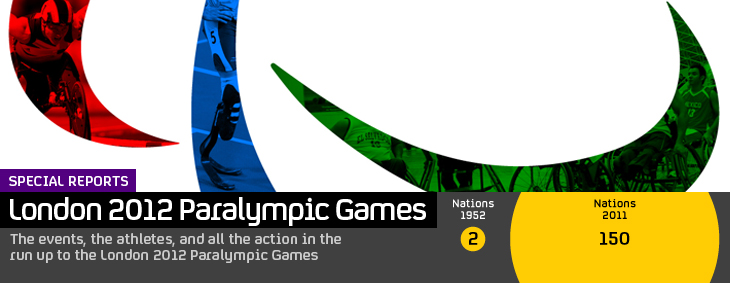Paralympics archive: the marathon debate (1983)
The popularity of the London Marathon, first run in 1981, meant disabled sportspeople were soon lobbying for inclusion in the event, and in 1983 the capital staged the first-ever Wheelchair Marathon.
Founded by Welsh athlete John Disley and former Olympic gold medallist Chris Brasher, the first London Marathon took place on 29 March 1981 and was considered a great success, writes Ian Searcey.
20,000 applied to run in the event, inspired by the New York marathon that Brasher had run in 1979, and 6,747 were selected, with 6,255 finishing the course.
The popularity of the event, and the fact that it was open to runners of all abilities, meant it was not long before disabled sportsmen and women were lobbying for inclusion.
Despite opposition, not least from Chris Brasher, the British Sports Association for the Disabled organised for 19 Wheelchair athletes to be admitted to the 1983 London Marathon.
Brasher was convinced it was a recipe for disaster. Seeing the event as a “road running” race, he was convinced that mixing competitors running at six miles an hour with wheelchairs that could reach speeds of 30 miles an hour on certain stretches of the course would inevitably lead to accidents, injury and even “more disability”.
It was only when the Labour controlled Greater London Council, particularly deputy leader Illtyd Harrington, insisted the race should be inclusive and threatened to withdraw some financial backing that the organisers accepted the change.
The inaugural Wheelchair Marathon in 1983 began behind the main field and had to follow a control car for the first four miles. 16 of the 19 competitors finished and the race was won by Gordon Perry (3hrs 20 mins) for the men and Denise Smith (4 hrs, 29 mins) for the ladies.
-
Latest news
-
‘Authentic Stupidity’: Ben Elton’s new show explores how idiotic human beings can be5m

-
Is Israel’s evacuation of Rafah the precursor to full scale invasion?3m

-
Eurovision: Non-binary artist wins for first time2m

-
Tens of thousands march in Georgian capital against ‘foreign agents’ bill2m

-
‘Russia’s number one goal is to get troops closer to Kharkiv,’ says Ukrainian security analyst4m

-





